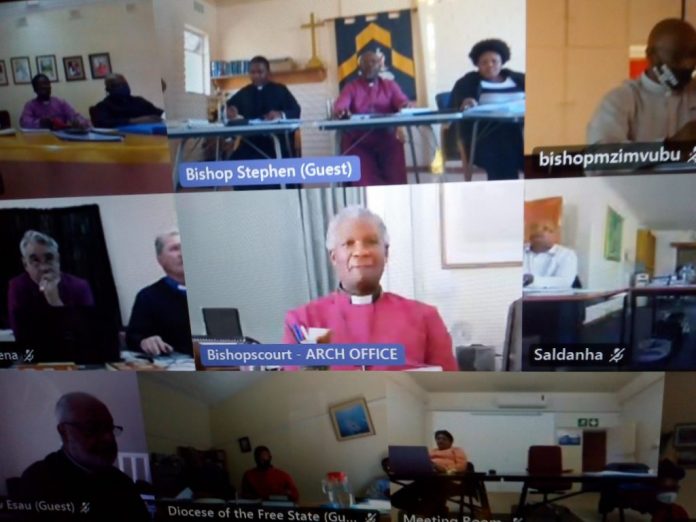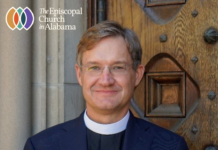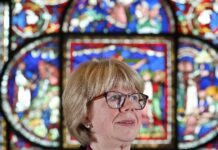To the beloved People of God,
Grace and peace to you!
The Synod of Bishops met virtually by video conferencing from Bishopscourt and Diocesan Centres from Monday 21 September to Tuesday 22 September 2020 as result of the challenging times prompted by Covid-19. Despite these difficulties there is much to be celebrated in the Province for faithful and committed service throughout the 150 years of our history in a world of human failure, corruption and violence. The Service of Celebration on Sunday 20 September 2020 with the Archbishop of Canterbury was witnessed by many people across the Province and the Anglican Communion.
Synod began with Morning Prayer, where we heard a homily from the Rt Revd Luke Pato, Bishop of Namibia, on the Season of Creation. The emphasis on Eden as a place of communion with God and harmony with the created order set the scene for a discussion of issues of violence, injustice, corruption and inequality, which are prevalent in our countries.
The Archbishop welcomed the Bishop of Table Bay, the Rt Revd Joshua Louw, who was attending Synod for the first time. The presenting Bishops, the Rt Revd Margaret Vertue and the Rt Revd Raphael Hess, reported on Bishop Joshua’s Consecration and Installation to bring on board those bishops who could not attend the service. Comments were made about the beauty of the liturgy, its awe and reverence. Also in attendance at Synod were three Vicars-General, the Very Revd Tanki Mofana from Lesotho, the Very Revd Carol Starkey from Kimberley and Kuruman and the Very Revd Ndabezinhle Sibisi from Natal. The Archbishop expressed his appreciation for the quality of leadership displayed by the Vicars-General, especially in Natal where there had been some serious challenges.
Synod met against the backdrop of COVID-19 and reflected on the impact of the pandemic and lockdown on families and the mission and ministry of the Church. Synod shared experiences and struggles of people and churches as a result of COVID. Most parishes adopted “virtual worship” initiatives by offering services via Facebook, YouTube, WhatsApp and the like. Lesotho opened a new radio station. The biggest challenge was the inability to retain all stipendiary Clergy on the payroll in some Dioceses. It was suggested that our church must learn to move away from cash collections to swipe machines as many organisations already do that.
Synod received preliminary reports on the Archbishop’s Commissions on Human Sexuality, Safe and Inclusive Church and on the election of Women to the Episcopate.
The Archbishop’s Commission on Human Sexuality called on the bishops to note that the issue of Human Sexuality concerns more than the question of Same-Sex Unions. It is a human experience involving physical, emotional and spiritual dimensions that require theological, structural and social responses from the Church. It was noted with sadness that in most Dioceses clergy are reluctant to discuss this issue. It was recommended that the Pastoral Guidelines for Same-Sex Unions be completed as a matter of urgency. The Commission further revealed that of one million babies born in South Africa in 2019, 60% are from single parents and of those, about 40% were cared for by women alone. Many men do not take the responsibility of family and children. Gender-based Violence (GBV) is also a result of this kind of behaviour.
Bishop Margaret Vertue addressed the Bishops on GBV and highlighted that it escalated during lockdown, especially during the first few weeks. It was recommended that adequate teaching and awareness-raising on abuse be offered to men and then children. There is a great need for perpetrators and the Church as a whole to repent for its complicity and silence in the face of Gender-based Violence. Male priests have often in the past tended to take sides with perpetrators, so determined are they to save marriages. As a result, victims are forced to declare forgiveness for perpetrators against their will or when they are not yet ready to do so. The Church needs eyes to see the problem, ears to hear the victims and big hearts to respond with courage and compassion.
Synod was strongly challenged to be intentional in its efforts to improve the participation of women in the leadership of the Church. Much more attention needs to be given to establishing and strengthening support mechanisms for women. The election of women to the episcopate needs to be discussed in the context of wider gender conversations.
The Dioceses in Mozambique and Angola updated Synod members on the vision for the formation of a Portuguese-speaking Province. Synod reaffirmed its support for the vision. We also heard of the plight of victims of terrorism in Cabo Delgado and Central regions. The Synod was informed of the creation of the Anglican Peace and Reconciliation Initiative for Mozambique and Angola (APRIMA), which has its aim spreading the gospel message by physically sharing life with the displaced, channelling Christian and humanitarian solidarity to the affected and developing community dialogue. The team from APRIMA appreciated the encouragement and support given for these developments and appealed to Synod for more support.
Synod expressed its deepest gratitude to the team that put together and managed the technology for video conferencing, including the Ven Grant Walters, Quintin Christian and his team. Everything worked exceptionally well.
We commend you to God’s love and keeping, and ask you to remember us in prayer as we meet in Provincial Standing Committee to discern God’s will as we grapple with the critical issues that face us as Church.
“To him who is able to keep you from falling, and to make you stand without blemish in the presence of his glory with rejoicing – to the only God our Saviour, through Jesus Christ our Lord, be glory, majesty, power and authority, before all time and now and forever! Amen.” — Jude 24-25



